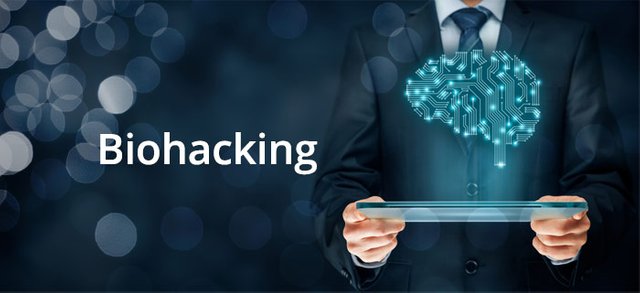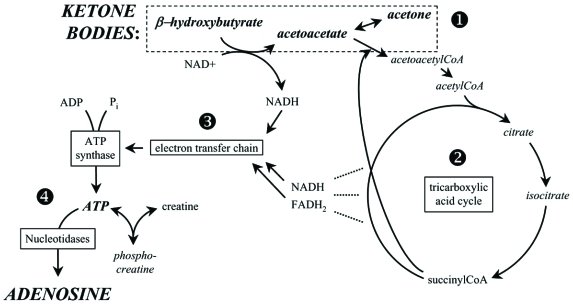Biohacking: A Visitor’s Guide

Photo Credit: Consumer Health Digest
Biohacking is, essentially, manipulating living things or oneself in order to enrich one’s daily life. It’s a hotly debated topic ethically, and many argue over whether or not those who don’t have degrees (or the “proper” training) should be using the sciences at home. We won’t be going over that in this article, so if you’re looking for discourse, hold your breeches! Rather, we’ll be touching on some of the vocabulary and technology found in some of the biohacking sphere’s biggest communities.
This article is not written to convince anybody to ‘break into’ the world of biohacking. Although most of the concepts used in the biohacking sphere are quite literally “do-it-yourself,” please don’t try any of this at home without your due diligence. I strongly urge readers to dig deeper and research their topics of interest thoroughly before diving into any supplements, implantations, or labwork.
So, let’s down to business! There are three major groups of biohackers out there (and probably many more of their own right) that are defined and identified by their practices. There are, for example, Grinders, who augment their bodies with gadgets and technologies. There are also Nootropical Biohackers who beef up their brains through the use of superhuman drugs and botanicals. Lastly, you might come across the Lab-Builders, the quintessential DIY-biologist complete with their very own home science lair.
Grinders: Cyborgs of the Modern Age?
Grinders are a community of biohackers who implant technologies under their skin to augment their senses and/or monitor their bodies. A couple of popular projects include magnetic implants and radio frequency identification (RFID) chips.
Magnetic implants are placed under the skin to pick up on and monitor things like sonar and ultraviolet waves, WiFi, and thermal diagnostics. One such group of Grinders-- Grindhouse Wetware -- has built a sonar system that utilizes magnetic implants to navigate through rooms without looking. They call this device the Bottlenose. Sound familiar? That’s because a similar technique (echolocation) is utilized by many aquatic mammals, including the bottlenose dolphin after which the device was named.
Rich Lee obtained national recognition after implanting magnets into the tragus of his ears. By using a coil, sound can be conducted and transmitted through the magnetic implant to create audio sensations like those created by earbuds or other auxiliary sound devices.
Many “starter” Grinders have begun their journey with RFID chips. These are typically put under the skin in the hand and use radio waves to transmit signals. The near-field communication (NFC) chips are a subset of RFID chips that may also be used. These devices are often found in mobile phones to send and receive small files or bits of data. Here, these chips are used to open doors, unlock cars, operate your portable tech, and even use your desktop computer-- all with the wave of your hand. Curious? Here’s an account of Rose Eveleth’s RFID chip experience.
Nootropics: Brainhacking and You
Biohackers who use nootropics (“smart” drugs) and botanicals alter the metabolism of their bodies to force it into operating at peak performance. While this might sound similar to pounding a fitness shakes before or after a workout, nootropics are primarily used to increase brain function, which leads to a domino effect. A common example is KetoPrime: it contains oxaloacetate, a chemical that decreases blood glutamate levels and simultaneously protects the brain against glutamate damage. Nootropical biohackers may fast for long periods of time. During these fasting periods, the body depletes itself of the carbohydrates it typically uses for energy. Without carbs, the body moves on to breaking down lipids, which are stored as fats. Once these fats begin to be broken down, they leave off a byproduct called ketones that can be used to make more ATP (energy) on a cellular level than glucose.As more and more fat burns in the fasting period, energy levels spike, and it places the mind in a more focused and euphoric state. This same idea is applied in the popular “ketogenic” diet, which is high in fats but low in carbohydrates. Here is an article explaining it works.

Picture credit: Adenosine Article
The use of botanicals has been around for as long as humans have practiced any form of medicine, but their use has gained an interesting amount of momentum in the biohacking community. Recently, attention was drawn to botanicals after Chinese traditional medicines were reviewed and tested on a pharmacological level. Catch Dr. Andrew Miles and Dr. Xuelan Qui on their podcast Botanical Biohacking, where they dive in deep to demystify the uses of common herbs and their effects on the body.
Lab-Builders: Your Friendly Neighborhood Mad Scientist
The lab builders are the last group of biohackers we’ll discuss in this article. For as cheap as $2,000, this type of biohacker can set up a functional lab in their condo, home, or apartment. But you might be wondering-- why?
Labs are built for many reasons. One may be used to study genetics. With the discovery of CRISPR and Cas9 mechanisms, it has become relatively easy to alter the genes of organisms when you have the right equipment. Josiah Zayner, for example, started The Odin, a company that supplies interested parties with discounted chemicals, CRISPR Cas9 kits, and other common lab supplies. His mission is to “fuel the biological revolution” in just the same manner that computers fueled the technological breakthrough of the ‘70s.
David Ishee is using CRISPR on his dalmatians to fix the genetic diseases that plague his dogs from selective breeding. If this resonates with your inner canine-lover, check out this article that Andrew Rosenblum wrote on him.
Other biohackers have built labs to perform tissue culturing on plants and mushrooms at home. This is accomplished by taking tissues from plants or fungi and growing them in petri dishes to create multiple clones. These studies can then be used to study mechanisms such as phototropisms, growth rates, and breeding patterns. While this might not sound like the most “exciting” use of a home lab, this can also allow one to study and manipulate plant genetics. Sebastian Cocioba runs a lab out of his home doing all kinds of genetic manipulations on plants. One example is his tomato steak, literally a tomato infused proteins that, when grilled, taste like beef steak. Watch his talk here.
Not Just For White Coats
Despite the “mad scientist” vibe that biohackers may give off, most have goals of bettering the lives of themselves and their communities. Remember, just because it may not be practiced in a professional lab doesn’t mean that it isn’t for a good cause. There is a group out there that has turned to biohackers, and ultimately themselves, to develop peptide cures for their cancers.
New groups of biohackers are popping up all over the globe. As our understanding of science grows, so too does the realm of possibility for it to be harnessed not just by “professional” scientists, but by the common man as well.
What about you -- will you be the next big biohacker? If I’ve piqued your interest, I urge you to check out this site and join the biohacking revolution!
We keep learning everyday. Thanks for this enlightement.
Congratulations @scitechlive! You have completed some achievement on Steemit and have been rewarded with new badge(s) :
Click on any badge to view your own Board of Honor on SteemitBoard.
For more information about SteemitBoard, click here
If you no longer want to receive notifications, reply to this comment with the word
STOPCongratulations @scitechlive! You have completed some achievement on Steemit and have been rewarded with new badge(s) :
Click on any badge to view your own Board of Honor on SteemitBoard.
For more information about SteemitBoard, click here
If you no longer want to receive notifications, reply to this comment with the word
STOPIt really is a revolution.